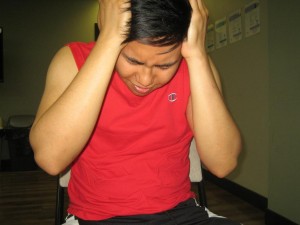Without the jaw, it is impossible to eat or chew food properly. It is important to note that this bony structure functions in protecting the internal organs of the mouth. The upper and lower jaw makes up the human jaw. The upper jaw is a fixed structure while the lower jaw can be moved up and down. The upper jaw is part of the skull and the lower jaw is connected to the temporal bone of the skull on all sides. The movement of the jaw is facilitated by the muscles that are connected to it and the muscles are hard and sometimes they can become tensed and tight.
[youtube url=”https://www.youtube.com/watch?v=T5PSI7ZjkkA” width=”220″]People consciously or unconsciously clench their jaw when angry or stressed and will cause muscle tension in the jaw. Teeth grinding can also cause muscle tension in the jaw. Consuming hard foods such as betel nuts and chewing on gum will strain the jaw muscles and cause stiffness and pain. In addition, an external injury or a blow to the jaw can cause muscle tension as well.

Symptoms of muscle tension in the jaw
- A clicking sound can be heard when opening the mouth or chewing food.
- The affected person can feel spasms and tightness of the muscles of the jaw upon waking up in the morning.
- Some people unconsciously grind their teeth at night. This action can cause the build-up of tension in the muscles of the jaw.
- There is difficulty in chewing the food caused due to the tension in the muscles of the jaw.
- There is tenderness and pain on one or both sides of the face.
Treatment and home remedies
- Apply a warm compress over the affected area of the jaw since this helps lessen pain and spasms caused by the muscles of the jaw.
- Avoid eating hard foods. The individual should stick with foods that are soft and does not require a lot of chewing such as cabbage, spinach and garlic which are good sources of vitamins and minerals. Other foods such as soft boiled eggs and tuna are also recommended.
- The individual should take vitamin C supplements to help boost the immune system as well as help in minimizing the pain and swelling caused by infections in the jaw.
- Avoid opening the mouth too wide when yawning since it adds more pressure and lead to straining of the jaw muscles and increase the muscle tension. Support the chin using the fingers when yawning.
- Seek the help of a dentist if the tension in the jaw muscles is caused by teeth issues.
- Gently massage the jaw area in order to relax the spasms and tightness of muscles in the jaw. Massage the jaw while slowly opening and closing the mouth to loosen the tension in the muscles found around the neck and jaw. This can be carried out several times in a day.
- The individual should avoid grinding of teeth at night to prevent pain in the jaw joint.
- The individual should be encouraged to try out meditation since it helps relax the mind and minimize the muscle tension in the jaw.
